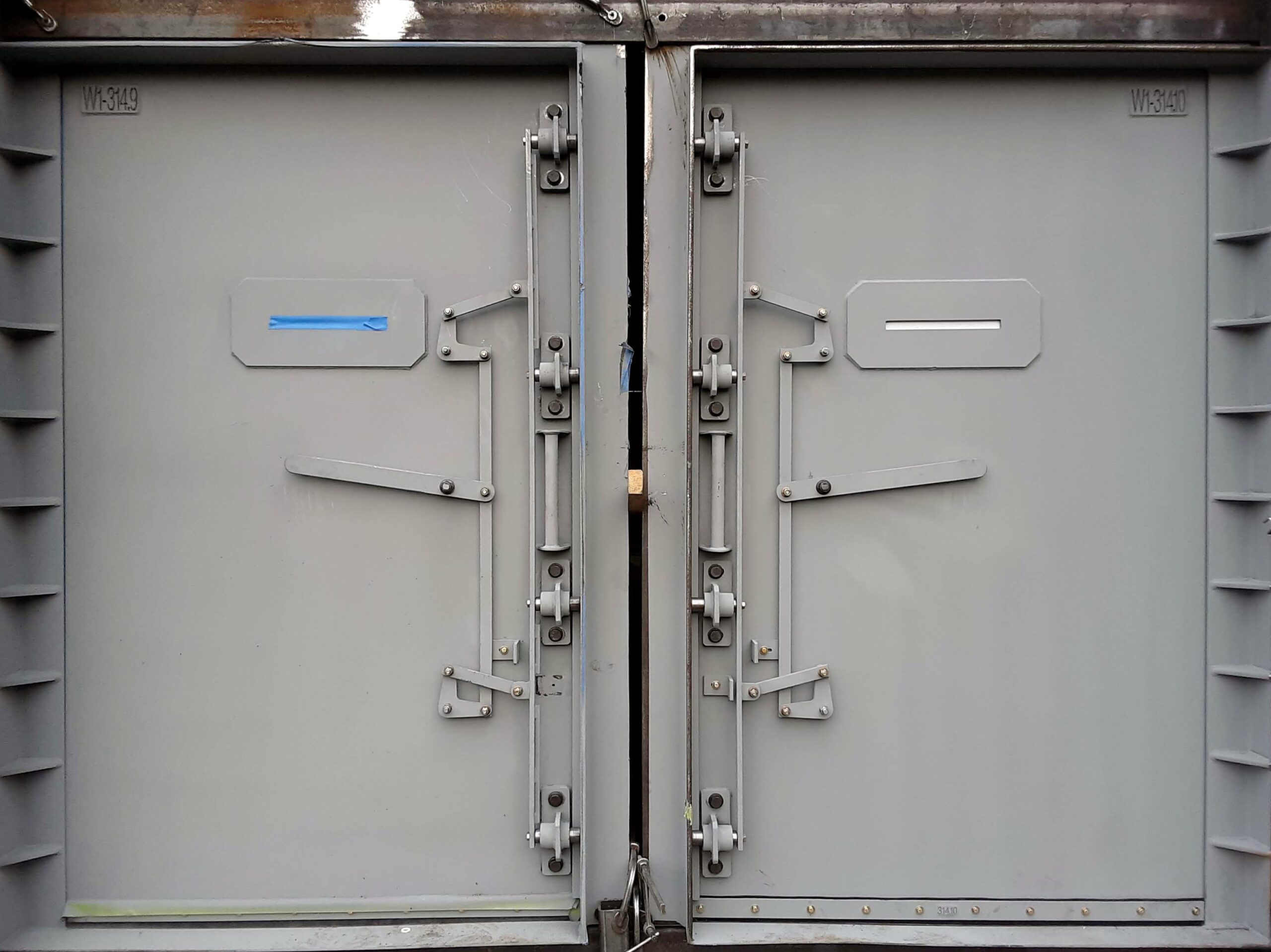Global Security Risks Drive Demand for Israeli Bomb Shelters
Raz Yatskan of G.G. Defense Systems: 'We are expanding our business to Europe and other places in the world ... places that I would say five or 10 years ago didn’t consider having these kinds of solutions.'
For 12 days in June, Israel and Iran exchanged attacks, resulting in destruction and death in both countries. With missiles hitting communities around Tel Aviv and central Israel, the extent of the damage emphasized the urgent need for bomb shelters across the nation.
Avigail Spiro, public relations specialist for Operation LifeShield, a nonprofit that provides Israel’s public spaces with bomb shelters, told The Media Line that the war increased the need for protected spaces throughout the country.
“Our main focus is putting bomb shelters where they’re needed most, which is usually southern and northern Israel by the borders of Lebanon and Gaza,” she said. “And this focus has expanded, especially with the Iranian attacks, to be the whole country coming to us for shelters.”
While Israel ramps up efforts to meet this demand for more shelters, other countries are also preparing for potential conflicts.
Raz Yatskan, vice president of marketing and business development at G.G. Defense Systems, an Israeli design-build defense contractor of a wide range of blast mitigation, forced entry and other defense solutions, told The Media Line that since Oct. 7, 2023, demand for their products has risen in US-based Jewish communities.
Jewish communities and synagogues are approaching us more and more to protect and deliver our solutions
“Jewish communities and synagogues are approaching us more and more to protect and deliver our solutions,” he said, referencing rising antisemitism and anti-Israel sentiment.
Though the company provides solutions to Jewish communities worldwide, Yatskan said the biggest demand currently comes from the United States.
Jacob Henrikson, general manager of American Safe Room headquartered in Oregon, told The Media Line the Russia-Ukraine war had an immediate impact in sales of their NBC (Nuclear, Biological and Chemical) filtration systems, setting a record for monthly filter revenue in March of 2022.
He explained that a perceived heightened risk of the US engaging in conflict leads to increased revenue and call volumes. Though there was an increase in call volume after the US bombed Iran, he noted they were mainly “feeler” calls and most consumer responses were to “wait and see.”
I believe the Ukraine invasion was likely one of the bigger scares to our customer base in the last 20 years
“It’s hard to overstate just how drastic the difference between the response to the Ukraine invasion and October 7 or the Iran strikes were,” he said. “I believe the Ukraine invasion was likely one of the bigger scares to our customer base in the last 20 years.”
He explained customers seemed to be more concerned about the threat of war with Russia than the conflict in the Middle East.
“That might be attributable to the remnants of Cold War prepper culture, or because Russia is a more credible nuclear threat,” he said.
For many in the US, the decision to buy a safe room is influenced by concerns of break-ins and terrorist attacks.
Ultimate Bunker in Utah builds underground bunkers as well as safe rooms in homes. Mike Peters, who started the company in 2008, told The Media Line that one reason people decide to build safe rooms is because of the fear of break-ins. These safe rooms, which on the lower end cost around $30,000 USD, are built with bulletproof fiberglass panels and a bulletproof door, but he said he does not do anything to prepare for missile strikes.
“It’s just too far out for anybody in America to be thinking that a missile’s going to come hit US soil,” he said.
“The reality is, who do you know that wants to go build a missile bunker?” he said. “If a missile comes here, we’re all screwed.”
Yatskan said G.G. Defense Systems, whose clients include the Israel Ministry of Defense, NATO and the US Army Corps of Engineers, saw increased demand in many countries due to global conflicts.
Give the gift of hope
We practice what we preach:
accurate, fearless journalism. But we can't do it alone.
- On the ground in Gaza, Syria, Israel, Egypt, Pakistan, and more
- Our program trained more than 100 journalists
- Calling out fake news and reporting real facts
- On the ground in Gaza, Syria, Israel, Egypt, Pakistan, and more
- Our program trained more than 100 journalists
- Calling out fake news and reporting real facts
Join us.
Support The Media Line. Save democracy.
Other countries are also reaching out to the force protection solutions company in response to global conflicts
We are expanding our business to Europe and other places in the world … places that I would say five or 10 years ago didn’t consider having these kinds of solutions
“We are expanding our business to Europe and other places in the world — the US, India, Singapore, Japan — places that I would say five or 10 years ago didn’t consider having these kinds of solutions,” he said. “Now, they are rethinking and saying, ‘We should be prepared now to mitigate future threats.’”
In Europe, he cited the war between Ukraine and Russia as the main reason for increased demand. He explained that Scandinavian, Baltic and other European nations, which hadn’t previously considered force protection, are now implementing such measures.
“Countries like Norway, Finland, the Baltic states — once really peaceful countries — are now saying, ‘Oh, we are being threatened by the conflict between Russia and Ukraine. We may be the next victim,’” he said.
He noted that many countries in East Asia are also reaching out in response to concerns of a nearby aggressor.
“There’s a sharp rise in demand from countries in the vicinity of China,” he said. “They think that they may be the next victims of aggression.”
Although the industry is growing, Yatskan said his company currently does not provide service to other Middle Eastern countries. However, he expects that to change within a year, citing proposals that have been submitted to countries involved in the Abraham Accords.
“Saudi Arabia is a strong potential client. We are waiting for the peace treaty, the next phase of the Abraham Accords treaty, to be signed so we can start working there as well,” he said.
He said that despite low demand for force protection in the UAE, he also expects the company to begin working there within the next one to three years.
“It’s a very peaceful country,” he said. “Nothing happens over there — no crime or terrorism.”

An inward swinging safe room door (Courtesy Jacob Henrikson)
Within Israel, Spiro noted that while the government supplies shelters to communities closest to the borders, it’s only for new buildings. Regarding communities that are a little farther from the border, they “still get hit by rockets, but it’s without government protection,” she added.
Yatskan commented that about 50 percent of homes in Israel lack shelters because they were built before 1992. Regulations were only established that year, mandating that protected spaces be included in new residential buildings.
While these measures may be novel for many countries, in Israel, defense infrastructure and safe shelters are all too common. Still, building protected spaces can mean spending tens of thousands of dollars.
Spiro explained that their most popular prefabricated shelter costs around $25,000, while converting an existing room into a safe shelter can cost double. Yatskan, whose company retrofits rooms to make them into protected spaces, said the average cost for retrofitting a nine-square-meter room is between $27,000 and $33,000.
Transport can mean additional expenses, Spiro said, especially when the shelters are sent to northern areas, as they require heavy cranes to move.
Following the Oct. 7, 2023, attacks and the ongoing war in Gaza, many of Israel’s border communities were evacuated. Spiro explained that the shelters in those areas were no longer needed and therefore could be repurposed.
“We had to get donors to help pay for the heavy cranes to move the shelters to strategic sites that would protect the IDF soldiers near the border,” she said.
Roy Greenberg, whose parents founded the Cosy Casa real estate and development company almost 20 years ago, told The Media Line that although safety solutions have advanced, many apartments in Israel, particularly in Jerusalem, still lack proper shelters.
I think the war just gave us a big alert on how necessary these solutions are
“I think the war just gave us a big alert on how necessary these solutions are,” he said.
He added that safety rooms are not designed to take a direct hit from a one- or two-ton missile. Building codes require structures to be built with certain materials so they are strong enough to withstand earthquakes. However, he explained, missile attacks are a different matter.
This is the reason for the safe room, which includes features designed to withstand the impact
“I don’t think it has a big impact if you have a 20- or 25-centimeter concrete wall because there are windows and other weak spots that the blast is going to infiltrate anyhow,” he said. “This is the reason for the safe room, which includes features designed to withstand the impact.”
Yatskan said out of the 1,000 rooms his company has retrofitted in the last decade, there were two real-life cases where they saved lives.
“We had two real cases of missiles coming from the Gaza Strip that had direct hits on houses with retrofitted shelters. And they actually saved families,” he said, describing the rockets’ warheads as being between 7 and 21 kilograms.
He added that the wars with Iran and in Gaza have demonstrated the real extent of missile damage.
“In the Oklahoma bombing, the damage inflicted by the car bomb was seen several blocks from the blast,” he said. “Here, we had the same principle but multiplied by the amount of ballistic missiles that were landing in the Tel Aviv district.”
In Israel, many companies provide shelters and fortify existing rooms.
Anna Baisburd, the office manager at Alumlight, an engineering company that once specialized in concrete casting molds, said the company stopped making shelters because there are so many factories in Israel that produce them.
For Israelis, uncertainty lingers from the ongoing war in Gaza, continued Houthi hostilities, and concerns about the fragile ceasefire with Iran. In the rest of the world, concerns persist over unrest in the Middle East, the Ukraine-Russia war, and Chinese aggression.
The world is not becoming a safer place
Yatskan succinctly concluded why the defense solutions industry is growing: “The world is not becoming a safer place.”
Addie J. Davis is a recent graduate of the University of North Texas and an intern in The Media Line’s Press and Policy Student Program.




